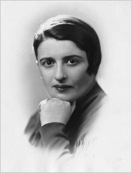Are All Novelists Moral Philosophers?
I've been reading Ayn Rand's writing reflections, The Art of Fiction.
You may not know this, but she started as a screenwriter and
playwright. This gave her an appreciation of structure, without which
I don't know that her success as a novelist would have been possible.

Anyway, in talking about theme, which she emphasizes, she makes the
point (rightly) that any story is going to have a worldview (she
doesn't call it that), even one that seems to have no point...because
that is a worldview, too. You can't escape leaving something for
readers to ponder. The only question is how well you do it.
According to Rand, all novelists are, therefore, “moral philosophers.”
Some are just not very good philosophers (in that they haven't thought through their
themes enough to know how to integrate them to the writing).
I like what she says about proving the theme through action. It's what
the characters do, how they respond to or activate the plot, that
proves the theme (or premise, as it is sometimes called).
Atlas Shrugged, BTW, is 640,000 words long. And every word is there to
support her premise, because she absolutely knew what it was.
Her editor, Bennett Cerf, made the mistake of suggesting a bit of
editing to her.
"You vould not cut zee Bible, vould you?" she said.
The book was not cut.
It still sells tens of thousands of copies a year, some 55 years after
publication.
So does On the Road, BTW, which was published that same year, 1957. In
part, I believe, because every word of THAT novel supports Kerouac's
premise that the point of life is the pursuit of "beatitude through
experience." Kerouac knew the premise without articulating it as such,
in a Randian way. But he was feeling it all the way through the
writing.
You don't have to agree with the philosophy of a novel, Rand says, to
appreciate the success or failure of the writer. She deems Sinclair
Lewis a failure and Mickey Spillane a success.
Fascinating.
Please feel free to respond via Twiitter.
You may not know this, but she started as a screenwriter and
playwright. This gave her an appreciation of structure, without which
I don't know that her success as a novelist would have been possible.

Anyway, in talking about theme, which she emphasizes, she makes the
point (rightly) that any story is going to have a worldview (she
doesn't call it that), even one that seems to have no point...because
that is a worldview, too. You can't escape leaving something for
readers to ponder. The only question is how well you do it.
According to Rand, all novelists are, therefore, “moral philosophers.”
Some are just not very good philosophers (in that they haven't thought through their
themes enough to know how to integrate them to the writing).
I like what she says about proving the theme through action. It's what
the characters do, how they respond to or activate the plot, that
proves the theme (or premise, as it is sometimes called).
Atlas Shrugged, BTW, is 640,000 words long. And every word is there to
support her premise, because she absolutely knew what it was.
Her editor, Bennett Cerf, made the mistake of suggesting a bit of
editing to her.
"You vould not cut zee Bible, vould you?" she said.
The book was not cut.
It still sells tens of thousands of copies a year, some 55 years after
publication.
So does On the Road, BTW, which was published that same year, 1957. In
part, I believe, because every word of THAT novel supports Kerouac's
premise that the point of life is the pursuit of "beatitude through
experience." Kerouac knew the premise without articulating it as such,
in a Randian way. But he was feeling it all the way through the
writing.
You don't have to agree with the philosophy of a novel, Rand says, to
appreciate the success or failure of the writer. She deems Sinclair
Lewis a failure and Mickey Spillane a success.
Fascinating.
Please feel free to respond via Twiitter.
Published on March 21, 2012 06:53
No comments have been added yet.



